Making Marine Science Matter at IMMC7 2024
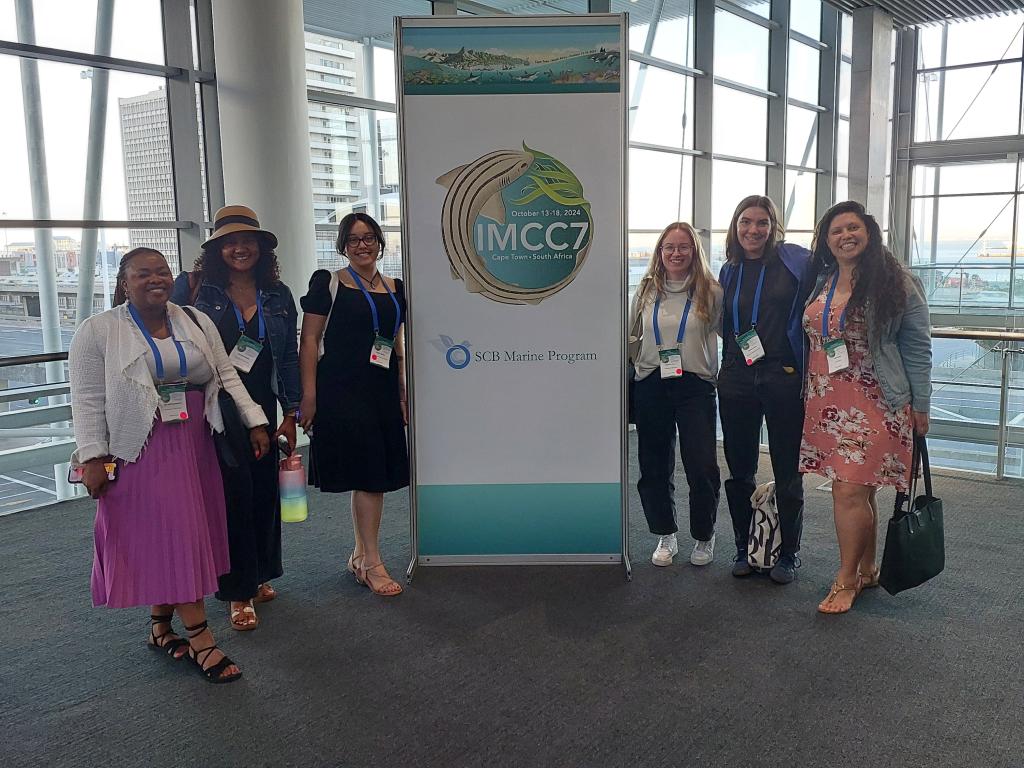
The International Marine Conservation Congress 2024: Championing Inclusive and Impactful Marine Science
From October 13 to 18, 2024, the 7th International Marine Conservation Congress (IMCC7) brought together over 800 delegates at Cape Town’s International Convention Centre. Organized by the Society for Conservation Biology’s Global Marine Program, IMCC7 emphasized the theme “Making Marine Science Matter” by fostering dialogue among scientists, policymakers, fishers, educators, artists, students, and journalists. This gathering of ocean conservationists—the largest of its kind—showcased the importance of collaborative efforts in marine research and conservation while advocating for a more inclusive and diverse field. Here is a snapshot of the experiences that some of MARiS' researchers had encountered at the IMCC7 conference.
Exploring the Southern Benguela Ecosystem
Prof Lynne Shannon was asked by WWF-SA to chair a panel on “The status of the Southern Benguela marine ecosystem – what is really going on in this once highly productive ecosystem?”. She began by providing an overview of what ecological fishery-related indicators are telling us about the ecosystem and its changes over time, showing that indicators of Demersal and Pelagic communities from 1988-2019 reveal that:
- Biomass and Catch increased (non-significantly) - favourable,
- Mean Lifespan of fish surveyed, Trophic Level and the Proportion of Predatory fish significantly declined – concerning
- (non-significant) declines in Mean Length of the surveyed fish community and of Inverse Fishing Pressure – concerning
In the Demersal community, lower mean fish indicator values in recent years are a possible cause for concern. For the small Pelagic community (based on reported catch statistics and survey results), indications are that the recent state of the overall small pelagic community as a whole is not as bad as expected, however, consequences of spatial changes (and spatially disproportionate fishing) manifest in predator communities of demersal fish and linefish. Changes in the fish communities East of Cape Agulhas may be contributing to reducing the overall wellbeing of the Southern Benguela ecosystem. Despite some improvements in the linefish community, there are signs of possible fishing down the food web.
Following her talk, a fisheries researcher from DFFE, a stock assessment expert from UCT, a seabird specialist from BirdLife SA, a small scale fisher from Kleinmond and a representative of the SA Pelagic Fishing Industry Association (SAPFIA) each provided the audience with insights into the changes in productivity of the Southern Benguela from their perspectives. These talks laid the ground for a rich panel discussion that included contributions form the audience. One suggestion going forward is to hold a coffee morning with the two fishers who participated in the panel, to facilitate continued dialogue and learning from these rich and longstanding sources of information and understanding of the conmplexities of the changing Southern Bengeula ecosystem.
This panel was a milestone event in the context of historic and ongoing debate and tension between the fishing industry, DFFE, conservation groups and academics, and provided a positive forum for enlightened discussion that we hope will continue.
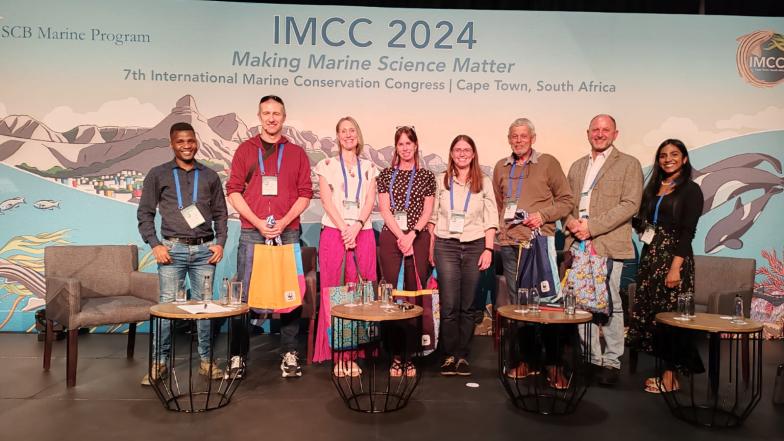
Bridging Science and Community Perspectives
MARiS Postdoctoral Fellow, Dr Annastacia Mpala shared that participating in the IMCC7 Marine Conservation Conference was an invaluable experience, where she delivered an oral presentation titled “From Methods to Reflections: Stakeholder Mapping and Engagement in Melkhoutfontein and Beyond in Marine Conservation” during the Human Dimensions of Marine Conservation session. This opportunity allowed her to share her commitment to community-level stakeholder mapping, capturing what it truly means to connect with individuals on their own terms, face their unique challenges, and foster enduring trust. She sensed a genuine interest from the audience, and Anna hopes that they gained new perspectives on the depth and complexity of local engagement. Annastacia is profoundly grateful to Eco-ACE Project for enabling this platform. Beyond her own presentation, she was inspired by other researchers' talks, focus groups, and panel discussions, each expanding her understanding of diverse approaches to marine conservation. The insights that she gathered offered fresh approaches that she looks forward to incorporating into her work, particularly those addressing sustainable, community-led conservation strategies. Annastacia is optimistic that the connections and collaborations that she formed at the conference will yield impactful, long-term solutions for coastal communities.
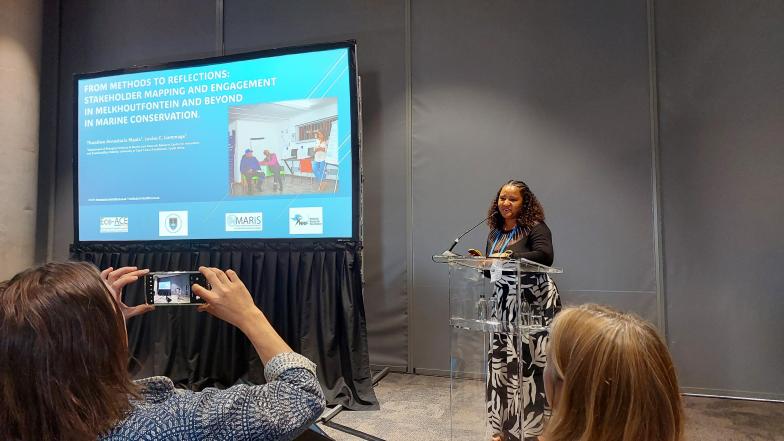
MARiS Science Communication Officer, Leila Nefdt had the opportunity to co-lead a Focus Group prior to the start of the IMCC7 Conference titled, "Further discussions on equity and justice in marine research and conservation." This session was inspired by the journal article written by herself and several other researchers from across the globe, de Vos et al. 2023 and they made the decision to continue the conversation on a few more topics that they weren’t able to unpack properly in the paper. Those 4 topics were:
- Topic 1 – Increasing Access to the Ocean and Ocean Research: Exploring ways to make marine research and conservation more accessible to all, particularly for marginalized communities.
- Topic 2 – The Opportunities and Challenges Around Pay-to-Volunteer/Volunteer Programs: Discussing the impact of volunteer programs on inclusion and equity in marine conservation work.
- Topic 3 – Inclusion of People Living with Disabilities: Addressing issues related to accessibility, mobility, and dexterity for lab work and fieldwork for individuals with disabilities.
- Topic 4 – Passion Exploitation: Examining the pressures faced by those working in marine research and conservation and how passion for the work can sometimes be exploited.
These topics were not easy to speak on, so everyone’s participation in the session was highly appreciated, sharing their thoughts and willingness to come up with potential solutions to tackle these challenges faced in the marine research and conservation space!
Leila felt honoured to represent the work that she does at UCT-MARiS and NGO, SeaTheBiggerPicture Ocean Initiative and share about what we do to increase access to the ocean and ocean research. If anyone else wishes to connect with the focus group team regarding these important topics, please feel free to reach out to them via their social page called @oceanaccess4all, give them a follow-on Instagram and Twitter/X to stay tuned to some updates on their discussion. Feel free to share your thoughts on what else may be missing from these types of discussions and how you think we can all make the ocean space more equitable, inclusive, and just. You can also contact Leila via email to share your thoughts.
All in all, Leila thoroughly enjoyed attending this jam-packed week at the IMCC7 conference as she had the opportunity to meet and engage with so many incredible ocean enthusiasts from across the globe from different spheres in the marine space, all with a common goal to protect our marine environment. She was also very happy to see that many other sessions that she attended throughout the week were focused on more social aspects of marine science and conservation and explored ideas and solutions to making this space more inclusive and diverse. She also shared that it was a great opportunity to witness some of the MARiS ECRs share their journeys in marine research and network with many others across the field.
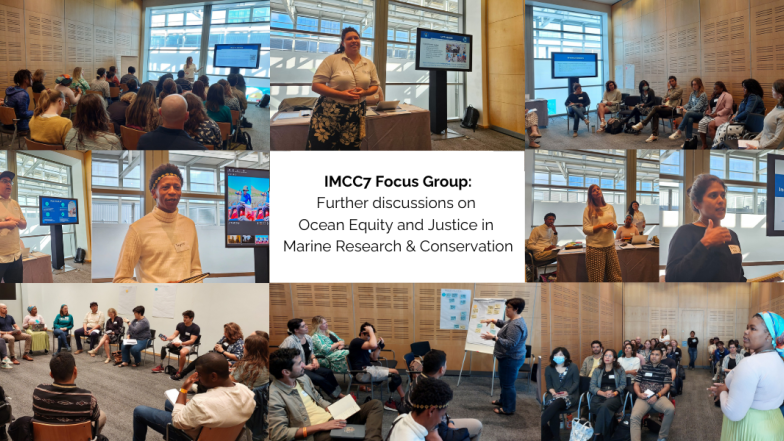
The Power of Young Researchers
Young marine researchers made a significant impact at IMCC7. Feedback from these early-career researchers revealed a mix of excitement and constructive criticism. While many celebrated the chance to engage with peers and learn from global leaders, others noted organizational hiccups, such as high costs and scheduling issues. The student social at the Two Oceans Aquarium, however, stood out as a highlight, offering a relaxed environment for networking and camaraderie.
Oko Sotshongaye (Biological Sciences PhD student) participated as a poster presenter and shared her research on "Bridging the gap between people and policy: exploring pathways to integrate local-level knowledge into ocean change decision-making" as part of the Eco-ACE Project.
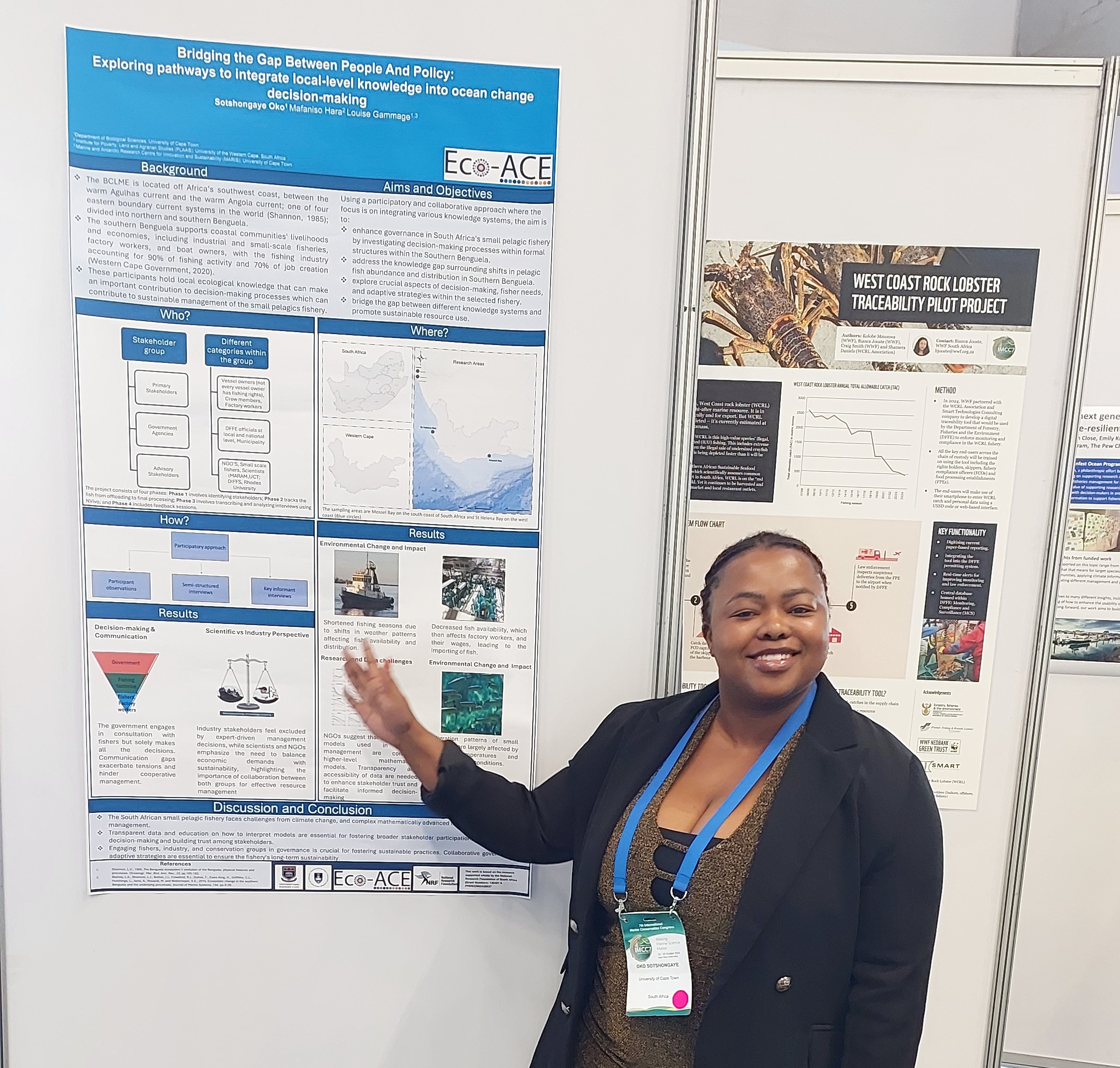
Natalie Le Roux (Biological Sciences, MSc student) presented in the fisheries and aquaculture session on Thursday, and her talk was titled “From Conceptual Diagrams To Semi-Quantitative Models Of Social-Ecological Systems: Exploring Fuzzy Cognitive Mapping For A Coastal Fisheries System In The Southern Cape, South Africa”.
Besides her talk, she really enjoyed the turtle session on the Thursday because after the presentations ended early, it then turned into a focus group where passionate people were asking questions and chatting about turtle conservation.
The student social at the aquarium was great since they organised a game for us to play to get to know each other without the scary top researchers there, and they gave us a drink voucher, and the food was really good. Also, there was free entrance to the aquarium, which was appreciated since we had to pay for absolutely everything else at the conference.
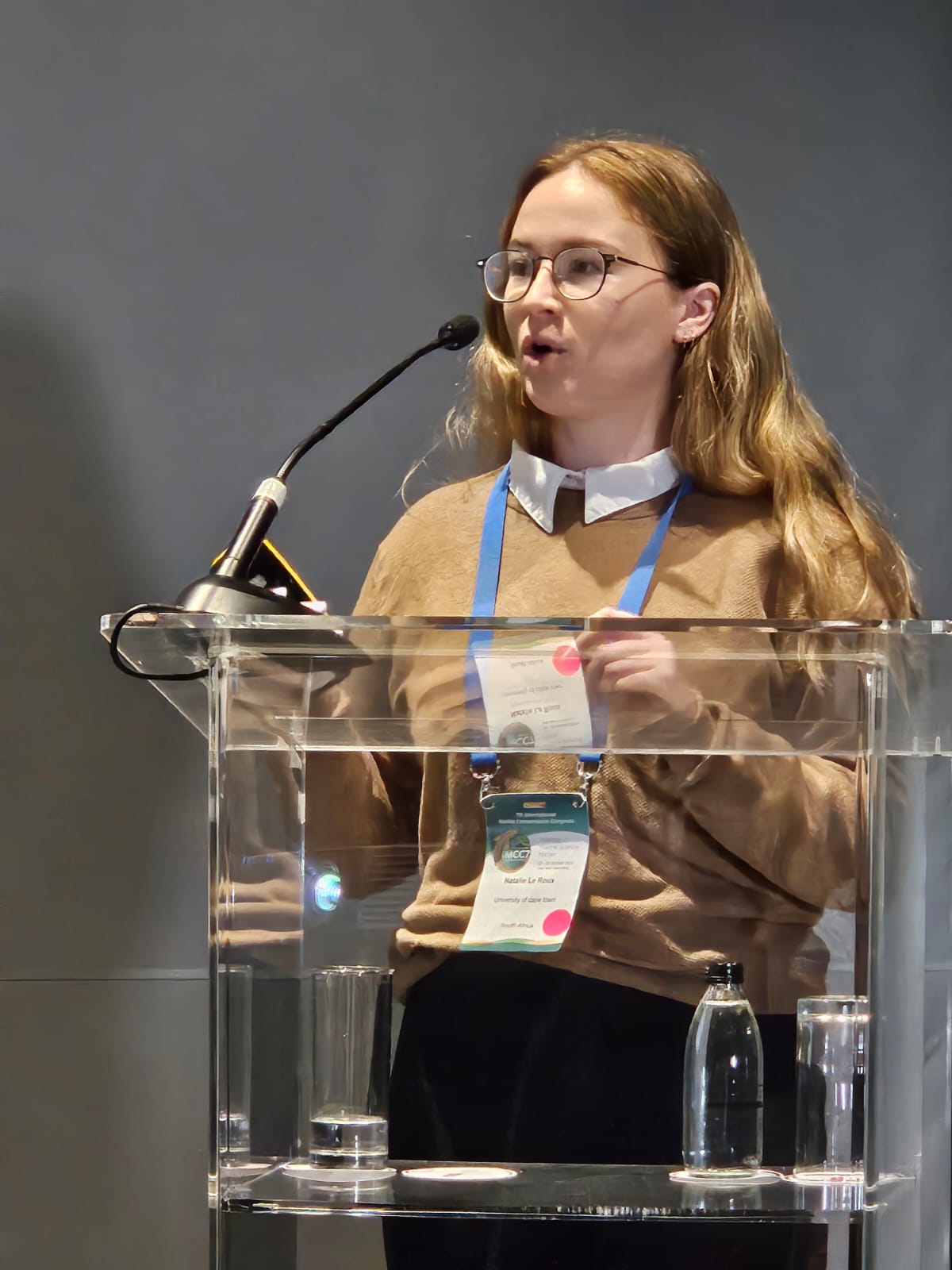
Robyn Daniels (AOS Masters Student) shared that she had an an amazing experience attending the IMCC7 conference and she was privileged to present her research on the inter-annual variation of killer whale acoustic occurrence around the Prince Edward Islands as a talk during the first dedicated session for threatened and endangered species. It was a great opportunity to showcase her research not only to fellow scientists, but other groups of people such as policymakers, resource managers, educators, and journalists to name a few. This was the perfect event to illustrate to local as well as international delegates on how important killer whales are as keystone species in the Prince Edward Islands' ecosystem which supports large masses of bedding seals and seabird and where climate change is evident. Additionally, to showcase the use of unique non-invasive monitoring methods such as passive acoustic monitoring to study these dynamic marine mammals and the need to improve the acoustic expertise in the Southern Hemisphere.
Quite a large number of people attended this prestigious event and with that comes a whole plethora of interesting talks and panel discussions to attend. Robyn was especially intrigued about learning about work being done to protect and research other endangered ecosystems and species worldwide, ranging from manta rays, penguins, white sharks, sawfish to brain coral. Some talks that she attended also touched on other aspects of marine conservation from the perspective of small-scale fishers working in collaboration with academics and sustainable aquaculture developments as alternative livelihoods.
Considering that this conference was so diverse in its attendees and talks provided, she found herself emersed in a broad range of interesting research and methodologies. This was particularly rewarding for her, as she considers herself a bit of a generalist and it was engaging to be able to attend varying sessions. Last, but not least, running into people at the conference that helped her during the start of her journey as a marine biologist when she was a mere teenager was also a pretty special moment, i.e., bumping into various people involved with the Two Oceans Aquarium Young Biologist and Volunteers cohorts."
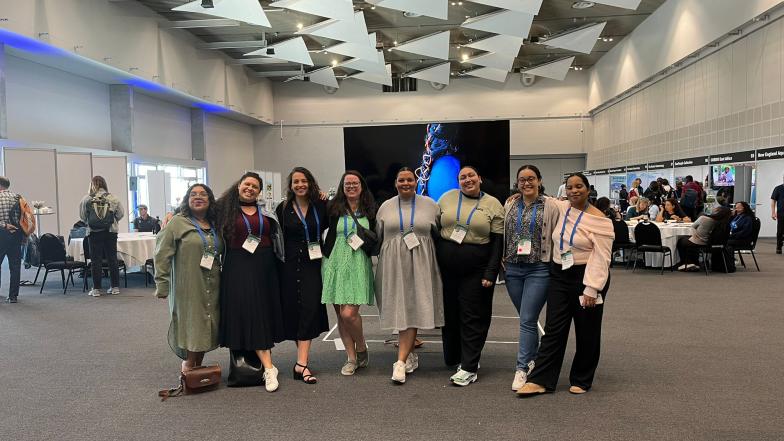
Inclusivity and Innovation: The Way Forward
IMCC7 was a vibrant reminder of why inclusivity and diversity matter in marine research and conservation. Sessions that combined scientific rigor with community perspectives showcased the transformative power of collaboration. From discussions on sustainable aquaculture to brainstorming solutions for social inequities, the conference demonstrated that diverse voices enrich the marine conservation narrative.
As the ocean faces unprecedented challenges, IMCC7 emphasized the need to not only conduct impactful research but to ensure that this research is accessible and relevant to all stakeholders. By fostering equity and inclusion, the marine conservation community can better address the complexities of ocean stewardship.
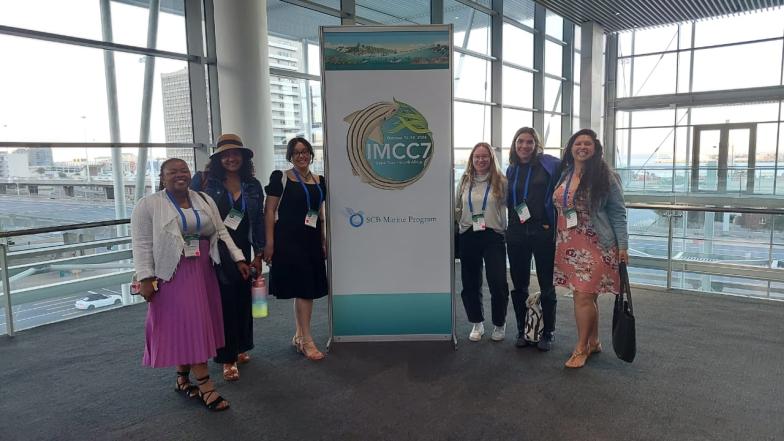
Call to Action
For those inspired by IMCC7’s message, the journey doesn’t end with the conference. Whether through supporting platforms like @oceanaccess4all on Twitter/X and Instagram, engaging in ongoing research collaborations, or amplifying marginalized voices in the marine space, there’s much work to be done. Let’s continue to make marine science matter for everyone! See more details of the IMCC and SCB Marine Programme here or contact them via email at imcc@conbio.org.